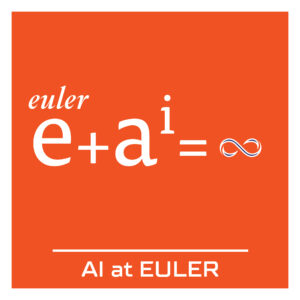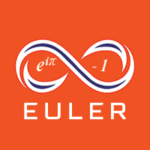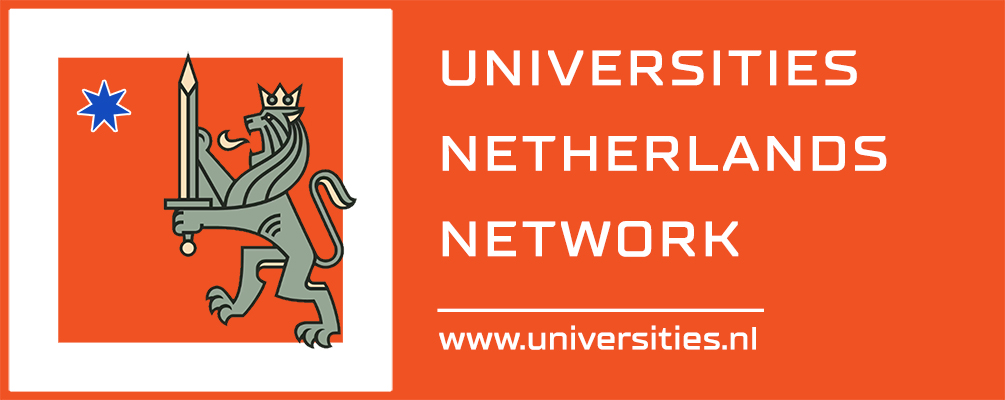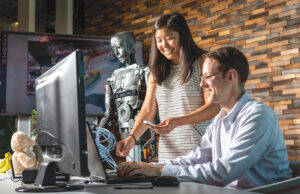Artificial Intelligence: The Backbone of EULER’s Online Education Ecosystem

In the rapidly evolving landscape of higher education, EULER (The Euler-Franeker Memorial University and Institute) stands at the forefront of innovation by seamlessly embedding artificial intelligence (AI) into the fabric of its online education systems, programs, and methods. This strategic integration ensures that EULER delivers a transformative, personalized, and equitable learning experience that prepares students for a technology-driven world. By blending broad general knowledge with highly-specialized, AI-aware competencies in fields such as energy, bioethics, and epidemiology, EULER equips its graduates to be adaptable, competitive, and forward-thinking leaders. This article explores how AI is intricately woven into every aspect of EULER’s online education framework, revolutionizing teaching, learning, and administrative processes.
AI-Powered Personalized Learning
At the core of EULER’s educational philosophy is the commitment to personalized learning, made possible through AI-driven adaptive learning systems. These systems leverage machine learning (ML) algorithms to analyze individual student data, including performance, learning styles, and preferences, to create tailored learning paths. For instance, EULER employs intelligent tutoring systems (ITS) that adapt content difficulty in real time, ensuring students progress at their own pace while receiving targeted feedback. This approach mirrors one-on-one tutoring, fostering deeper understanding and engagement.
In specialized programs like bioethics or epidemiology, AI customizes coursework to align with each student’s career goals and prior knowledge. For example, a student studying energy policy might receive AI-generated case studies that incorporate real-time data on renewable energy trends, while another in epidemiology might engage with simulations of disease spread tailored to their learning level. By integrating AI into its learning management systems (LMS), EULER ensures that content delivery is dynamic, interactive, and responsive to individual needs, promoting both academic success and critical thinking.
AI-Enhanced Curriculum Design and Delivery
EULER’s curriculum design is deeply rooted in AI, enabling the institution to stay agile in a fast-changing academic and professional landscape. AI algorithms analyze vast datasets—textbooks, research papers, and global industry trends—to craft curricula that are both current and forward-looking. In fields like bioethics, AI identifies emerging ethical dilemmas in AI-driven healthcare, ensuring students are prepared to navigate complex issues. Similarly, in energy programs, AI integrates predictive analytics to teach students about sustainable energy solutions based on real-world data.
Generative AI plays a pivotal role in content creation, producing interactive quizzes, simulations, and virtual labs that make abstract concepts tangible. For instance, students can explore 3D models of molecular structures in a virtual lab for epidemiology or engage in AI-driven role-playing scenarios to debate bioethical issues. These immersive experiences, powered by augmented reality (AR) and virtual reality (VR) integrated with AI, bring subjects to life, enhancing retention and understanding.
Streamlining Administrative Processes with AI
Beyond teaching and learning, AI optimizes EULER’s administrative operations, allowing faculty to focus on instruction and mentorship. AI-powered systems automate routine tasks such as scheduling, grading, and resource allocation. For example, EULER’s LMS uses AI to manage class schedules and predict optimal times for virtual sessions based on student engagement data. Automated grading systems, powered by natural language processing (NLP), evaluate assignments with consistency and provide detailed feedback, reducing subjectivity and saving time.
AI-driven chatbots and virtual assistants are integral to EULER’s student support services. Available 24/7, these tools answer queries about assignments, deadlines, or program requirements, enhancing accessibility and reducing the administrative burden on staff. For instance, a student in a bioethics course might use a chatbot to clarify ethical frameworks, receiving instant, AI-generated explanations tailored to their question. This seamless support system ensures students remain engaged and informed, regardless of their time zone or schedule.
Fostering AI Literacy and Ethical Awareness
EULER recognizes that AI literacy is essential for students to thrive in an AI-driven world. All programs incorporate modules on AI’s capabilities, limitations, and ethical implications, ensuring graduates are not only users of AI but also critical evaluators. For example, in epidemiology, students learn to assess AI-generated predictive models for bias, while in energy programs, they explore AI’s role in optimizing renewable energy systems while addressing data privacy concerns. These modules are supported by AI-driven discussion platforms that encourage students to debate ethical issues, fostering critical thinking and global awareness.
To ensure responsible AI use, EULER implements robust data privacy and security protocols. AI systems are designed with transparency, allowing students and faculty to understand how data is used. Regular audits and ethical guidelines prevent misuse and ensure compliance with global standards, aligning with UNESCO’s call for a human-centered approach to AI in education.
AI-Aware Specialized Competencies
EULER’s specialized programs are designed to be AI-aware, equipping students with skills to leverage AI in their respective fields. In bioethics, AI tools analyze case studies to highlight ethical considerations in AI-driven medical decisions. In epidemiology, students use AI to model disease outbreaks, learning to interpret and refine predictive algorithms. Energy programs integrate AI to optimize grid management and forecast energy demands, preparing students for careers in sustainable technology. By embedding AI into these disciplines, EULER ensures graduates are proficient in both domain-specific knowledge and AI applications, making them highly competitive in their fields.
Addressing Challenges and Ensuring Equity
While AI offers immense potential, EULER is proactive in addressing challenges such as data privacy, bias, and equitable access. The institution collaborates with industry partners to develop unbiased AI systems, using diverse datasets to ensure fair outcomes. To bridge the digital divide, EULER provides affordable access to AI-driven tools and invests in infrastructure to support students in underserved regions. Faculty receive ongoing training to integrate AI effectively, ensuring they can guide students in its ethical and practical use.
Preparing Graduates for an AI-Driven Future
By embedding AI into its systems, programs, and methods, EULER creates a dynamic, inclusive, and innovative online education ecosystem. Graduates emerge not only with a strong foundation in general knowledge but also with specialized, AI-ready skills that enable them to tackle real-world challenges. Whether addressing ethical dilemmas in bioethics, modeling public health strategies in epidemiology, or innovating in energy sustainability, EULER’s students are equipped to lead in a technology-driven world.
In conclusion, EULER’s integration of AI transforms online education into a personalized, efficient, and forward-thinking experience. By leveraging AI to enhance learning, streamline operations, and foster ethical awareness, EULER prepares its graduates to excel in a rapidly evolving global landscape. As AI continues to shape the future, EULER remains a pioneer, ensuring its students are not just participants but leaders in the intelligent age.












